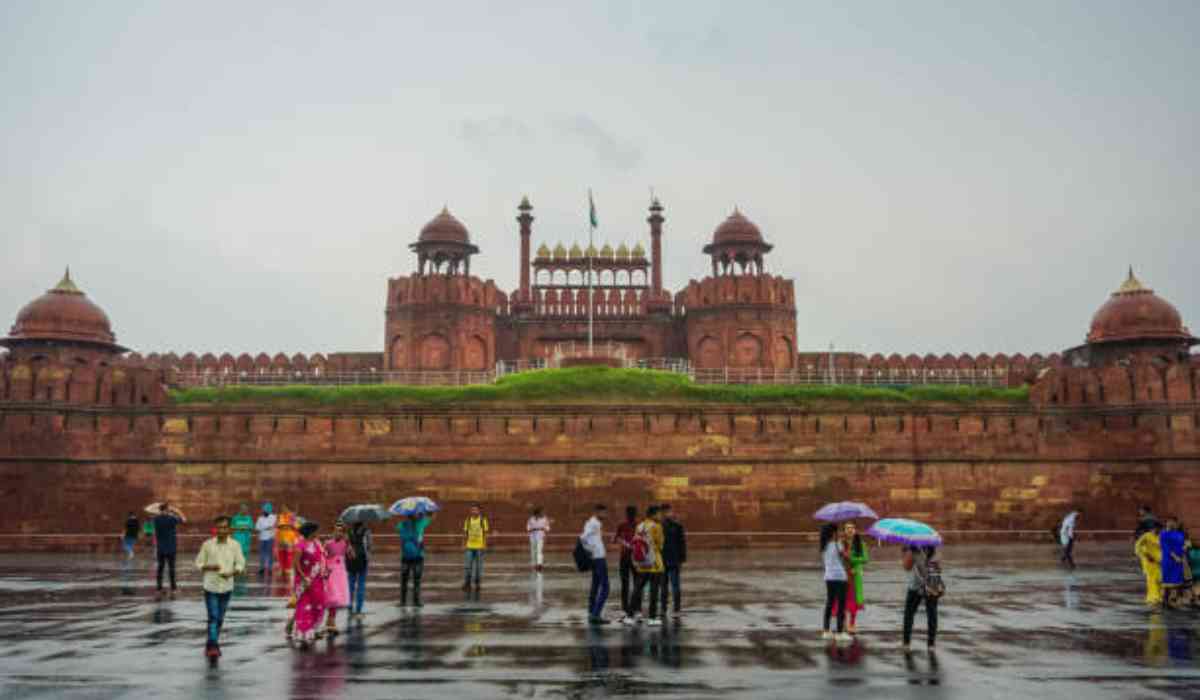Delhi, India's capital, celebrated a notable milestone this weekend by celebrating the first day of "good" air quality of the year, recording an air quality index (AQI) of 45. This is a major achievement, based on data from the Central Pollution Control Board (CPCB), recognizing the city's cleanest air quality throughout the year. Let us examine the details of this remarkable event, the impact of the rains and the future of air quality in Delhi.
On Sunday, September 11, 2023, residents of Delhi breathed a sigh of relief as the city's AQI reached the 'good' range. An AQI between 0 and 50 falls into this category, meaning the air quality is not only acceptable but also good for your health. This milestone is a testament to the collective efforts to combat air pollution in the city.
Delhi was not the only city blessed with cleaner air; neighbouring areas like Ghaziabad and Noida also joined the 'good' air quality club while Gurgaon reported 'satisfactory' air quality. This positive trend means clean air efforts are paying off across the National Capital Region.

To fully comprehend the significance of an 'excellent' air quality day in Delhi, it is essential to be familiar with the AQI categories. The AQI is divided into six categories. Each category corresponds to a different level of health risk and each category also has a specific colour for easy identification.
- 0-50 (Good): Excellent air quality with no health dangers.
- 51-100 (Moderate): Air quality is satisfactory, whereas some pollutants may cause problems for a small number of individuals with specific sensitivities
- 101-200 (Poor): Air quality is acceptable, but a small percentage of the population who are extremely sensitive to air pollution might suffer from moderate health concerns.
- 201-300 (Unhealthy): The air quality is potentially dangerous, and everyone could face health consequences. Those in the greatest need may suffer from more significant health consequences.
- 301-400 (Severe): Health Caution: Anyone may suffer from longer-lasting health consequences.
- 401-500 (Hazardous): Emergency medical advice.
Rainfall played a crucial role in this improvement in air quality. Rain fell across the city on the night of September 10 and into the morning of September 11, lasting until midday in some areas. Most regions experienced moderate rainfall in the last 24 hours. The Safdarjung weather station, Delhi's main observatory, recorded 38.6mm of rain from 8.30 a.m. on Saturday to 8.30 a.m. on Sunday, with another 1.3mm of rain by 11 a.m. 30 hours on Sunday. The highest recorded rainfall of 58 mm fell in Mayur Vihar during this period. The India Meteorological Department (IMD) forecasts very light rain or drizzle on Monday, with no rain expected on Tuesday, Wednesday and Thursday. Very light rain is possible on Friday. Achieving “good” air quality in Delhi is a clear sign of progress in the fight against air pollution and its negative impact on health.

In 2023, ahead of this important day of 'good' air quality, Delhi witnessed the cleanest air on July 29 with an AQI of 59, which fell in the 'satisfactory' category. Last year, the city only had “good” air quality for three days in September and October. In 2021, there was a day with “good” air quality in October. On the contrary, there were five such days in 2020 and two in 2019, according to CPCB data.
In conclusion, Delhi's first day of 'good' air quality in 2023 is a milestone worth celebrating. The rains, combined with ongoing efforts, have provided cleaner air in the city, underlining progress in the fight against pollution. Although challenges remain, this success sets a positive precedent for the future and encourages us all to work towards a cleaner, healthier environment for ourselves and future generations.
© Copyright 2023. All Rights Reserved Powered by Vygr Media.



















